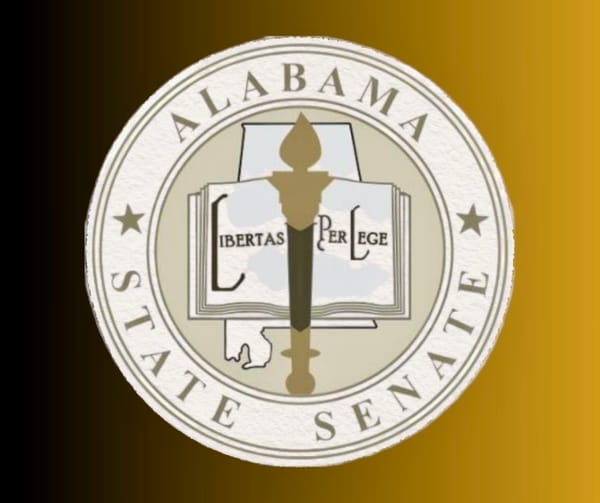Utilities Already Control the Meter. Lawmakers in Another State Now Want the Thermostat. Could Alabama Be Next?
A proposed Ohio law to allow utilities to remotely adjust resident’s thermostats has implications for Huntsville and Alabama

Guest Opinion by Alicia Boothe Haggermaker
(Disclosure: our community has recorded meetings with HU staff; quotations and summaries here reflect statements made on the record.)
When pressed on the safety of smart meters, Huntsville Utilities (HU) repeatedly points to the Federal Communications Commission (FCC) and IEEE guidelines—as if that settles it.
But here’s the truth:
Those guidelines were drafted in 1992 and adopted in 1996.
They focus on thermal heating and ignore modern science on non-thermal biological effects, cumulative exposure, and long-term risks.
In 2021, the D.C. Circuit Court ruled the FCC’s refusal to update these limits “arbitrary and capricious,” ordering the agency to revisit them (Children’s Health Defense & Environmental Health Trust v. FCC).
Nearly 30 years later, the FCC still hasn’t modernized those rules—and local utilities keep hiding behind them.
The Court Case They Don’t Want You to Know About
In 2021, the D.C. Circuit agreed that the FCC had ignored thousands of pages of evidence of RF effects below current limits—including impacts on children, pregnant people, and medically vulnerable residents, as well as neurological, reproductive, and environmental harms. The court ordered the FCC to explain itself and reconsider.
Because the ruling set no deadline, the agency has stalled. That doesn’t make the old rules “safe.” It just means they’re outdated and unaddressed.
Huntsville Utilities’ Response: Pass the Buck
HU has told residents to “take their argument to the FCC and IEEE.” Translation:
They admit their safety case relies on minimums from 1992/1996.
They know those standards were flagged by a federal court as inadequate.
Instead of addressing local risks, they point back to the very agency the court rebuked.
That’s not safety. That’s bureaucratic deflection.
Liability vs. Negligence (Why Silence Is Riskier)
We’re told HU can’t post any health disclosures because that would “increase liability.” Backwards.
Disclosure = due diligence. It enables informed consent and can limit liability.
No disclosure in the face of credible concerns = negligence. If you know (or should know) of risks, ignore a federal court’s warning, and fail to warn customers, that’s much harder to defend.
Refusing to disclose doesn’t shield HU. It exposes HU.
Who Gets Hurt First? Meemaws, Babies, Daycares, and Renters
In recent meetings with HU administrators (recorded with their knowledge), residents raised the real-world people who’ll be hit first and hardest:
Seniors (“Meemaws”) on fixed incomes. HU’s draft policy creates a three-tier fee structure where customers who can’t keep up with monthly photo-reads can be kicked into a higher “HU-performed” manual-read tier—with no provision to reclassify back after “repeated failure.” HU acknowledged this could trap the elderly who forget or struggle with technology, and said collections staff might point them to 2-1-1 assistance—but there’s no guaranteed accommodation.
Daycares & small home businesses. The draft draws a hard line against “commercial” accounts—even when they’re literally single-phase residential services in former houses (think home daycares). HU suggested only case-by-case exceptions. That’s a policy choice, not a technical inevitability—and it shifts costs and risks onto caregivers of small children.
Multi-unit renters. HU is poised to exclude most multi-unit buildings from the low-cost self-read path, citing meter-bank access and identification issues. Residents pointed out many banks are outdoors and clearly labeled; HU still prefers blanket exclusion and “case-by-case” appeals. Renters—often lower-income families—get boxed into the highest monthly fees.
Medically vulnerable families & kids. HU acknowledged that in any analog shortage they’d install a digital, non-communicating meter “as an interim measure,” but residents objected that some digital designs still create dirty electricity concerns. Infants, diabetics, and respiratory patients can’t absorb “interim” temperature swings or exposure disputes the way healthy adults can.
This isn’t abstract. These are the very categories HU’s own staff discussed on the record.
The Bigger Picture: Now They Want Your Thermostat
This fight isn’t unique to Alabama. Across the country, utilities and lawmakers are testing remote control over what happens inside your home.
In Ohio, House Bill 427 would allow utilities to remotely adjust customer thermostats during peak demand. Even small shifts can be dangerous for a newborn in a nursery, a senior on oxygen, or a person with chronic illness.
Today it’s “voluntary demand response.” Tomorrow it’s mandated overrides—especially once every meter is “smart,” every thermostat is “connected,” and an algorithm decides what comfort you “need.”
First the meter. Next the thermostat. Then what?
Alabama: Draw the Line (and TVA, Do Your Job)
When utilities say “FCC compliant,” what they really mean is:
>..We’re using 1992 science, adopted in 1996, flagged by a federal court in 2021, and still not updated in 2025.
That is not safety. That is institutional inertia dressed up as compliance.
TVA—the wholesaler and regional authority that influences HU’s policies and rate structures—must not treat “FCC compliant” as a magic shield. TVA oversight should require up-to-date health reviews, transparent disclosures, and workable, affordable opt-outs for seniors, renters, and daycares—before endorsing any expansion of remote control into customers’ homes.
Alabama families deserve transparent disclosures, workable opt-outs, and explicit prohibitions on remote thermostat control without opt-in, revocable consent and no penalty for refusal.
Tell Huntsville Utilities, TVA, and our legislators: we won’t trade our babies’ nurseries and our Meemaws’ living rooms for outdated standards and remote switches.
Sources (live links)
D.C. Circuit Opinion (CHD & EHT v. FCC, 2021):
https://law.justia.com/cases/federal/appellate-courts/cadc/20-1025/20-1025-2021-08-13.html
EHT case summary with exhibits:
https://ehtrust.org/us-court-of-appeals-for-the-d-c-circuit-remands-fcc-5g-wireless-rf-safety-rules/
EHT Fact Sheet (overview of issues the FCC failed to address):
1996 FCC adoption of RF exposure guidelines (Federal Register):
https://www.govinfo.gov/content/pkg/FR-1996-08-07/html/96-20082.htm
Current FCC RF exposure limits (47 CFR § 1.1310):
https://www.ecfr.gov/current/title-47/section-1.1310
Report on Ohio thermostat bill (HB 427):
For more information, follow Stop Smart Meters North Alabama on Facebook or see this related article: Huntsville Utilities Smart Meter Opt-Out Policy Faces Pushback.
Alicia Boothe Haggermaker is a lifelong resident of Huntsville, Alabama, and a dedicated advocate for health freedom. For more than a decade, she has worked to educate the public and policymakers on issues of medical choice and public transparency. In January 2020, she organized a delegation of physicians and health freedom advocates to Montgomery, contributing to the initial draft of legislation that became SB267.
Opinions do not reflect the views and opinions of ALPolitics.com. ALPolitics.com makes no claims nor assumes any responsibility for the information and opinions expressed above.




